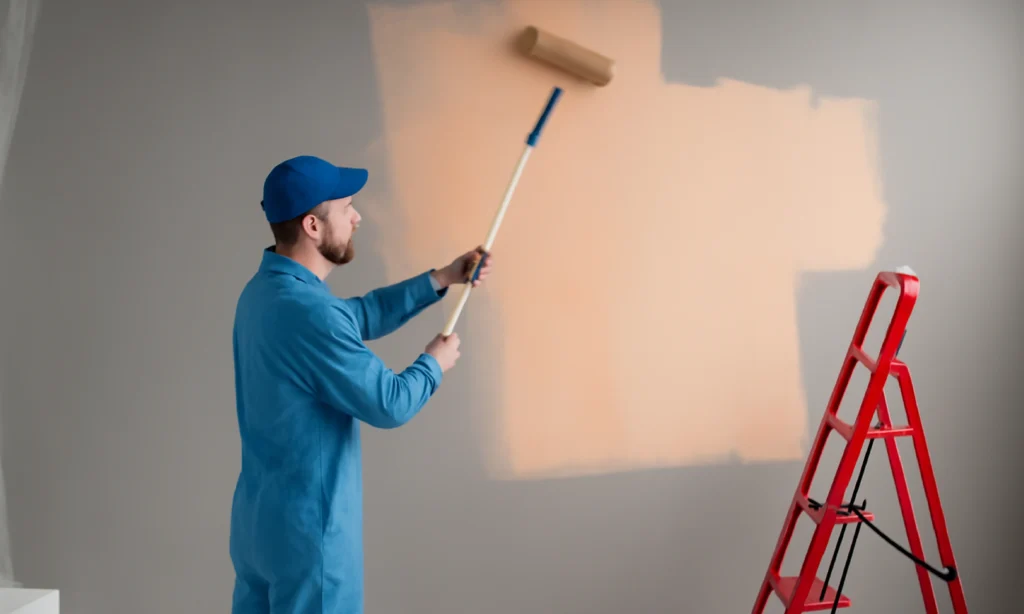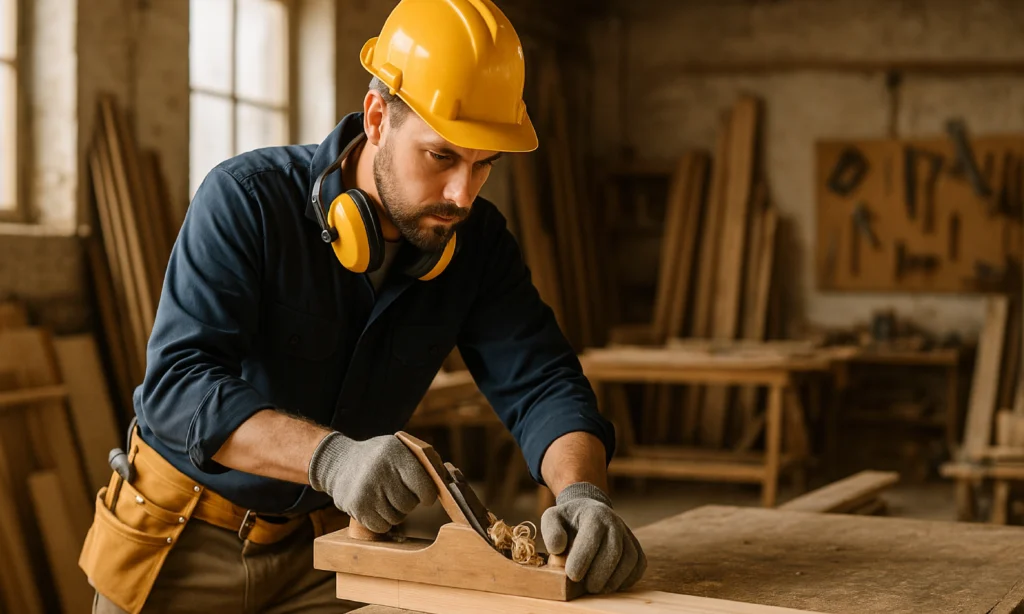The renovation industry in Italy is booming like never before and this means that there are numerous opportunities to be had by talented painters. Whether it is a restoration of historic buildings in Rome or modernization of apartments in Milan, the need of professional painters is as high as never before. This is your ultimate guide that will tell you all about working as a painter in the booming renovation sector in Italy.
The Current State of Italy’s Renovation Market
The renovation industry in Italy has emerged as a pillar of the Italian economy. The Superbonus 110% program is one of the government incentives that have triggered a renovation boom in the peninsula. This program enables owners of property to deduct as much as 110 percent of the cost of renovation against their taxes, which makes renovation economically enticing.
The construction sector currently contributes about 6 percent of the Italian GDP and renovation work constitutes a major part of this activity. Such cities as Florence, Venice, and Naples are spending a lot of money on keeping their architecture intact and modernizing the infrastructure.
This increase in renovation work has caused shortage of skills in the construction trades. The skilled painters are especially in demand, since the quality of paintwork is a major concern both to the beauty of the property as well as to its protection in the diverse climatic conditions in Italy.
Types of Painter Jobs Available
Residential Renovation Projects
Italian houses often need repairs because of the Mediterranean climate and the outdated housing stock of the country. Residential renovation painters deal with exterior and interior wall painting as well as restoration of facades. Such projects usually require dealing with more traditional Italian materials such as lime-based paints and special finishes.
The residential painter market is concentrated on apartments in old city centers. These are properties that should be handled carefully because some original architectural designs are to be maintained, and the living areas are to be modernized. Color matchers and traditional painters get constant employment in this segment.
Commercial and Industrial Painting
The business world of Italy provides many opportunities to painters. Restaurants, hotels, and retail premises are regularly renovated in order to retain their competitiveness. Tourism, especially in such cities as Rome and Venice, leads to the ever-present need in commercial painting services.
Painting services are also needed in industrial facilities. Industrial painters in northern Italy are involved in everything, including maintenance of machinery and structural protection projects on the Mediterranean coast.
Historic Restoration Work
The cultural heritage of Italy also presents special opportunities to the restorers of paintings. These are some of the most skilled workers who are involved in churches, palaces and other historic buildings in the country. Restoration painters have to be knowledgeable of the old methods and materials and have to be able to comply with the current conservation requirements.
This is a specialty that needs extra training and certification. Nevertheless, restoration painters can be paid more and have job security because of the specificity of their work.
Skills and Qualifications Required
Technical Painting Skills
Effective painters in the renovation industry in Italy need to learn different techniques. The preparation of the surface is also essential because most of the buildings in Italy have uneven walls or need special primers. Learning the types of paints and their uses is critical towards getting professional outcomes.
The theory of color and mixing abilities are especially useful. Italian customers usually have their color preferences based on the local customs. Artists who are able to create custom colors and know how to work with natural light and paint colors are distinguished in the market.
Knowledge of Italian Building Standards
There are particular building codes and safety regulations that have to be adhered to in Italy by painters. Being aware of these requirements will assist in ensuring that they are followed and prevent expensive errors. Most of the regulations are concerned with the environment such as disposal of paint materials and low-VOC products.
On the Italian construction sites, safety measures are strictly observed. The painters should know the requirements of personal protection equipment and know how to work safely with other trades.
Language and Communication Skills
Although not necessarily so, the knowledge of the Italian language greatly enhances employment opportunities. Most of the small renovation firms would like to employ painters who can directly communicate with the clients and know the project specifications in Italian. Entry-level jobs usually do not require advanced conversation skills.
Communication skills are very important so that painters can liaise with other trades and expectations of the client. The power to simplify technical processes makes property owners and project managers trust the person.
Where to Find Painter Jobs in Italy
Major Cities and Regions
Northern Italy especially Milan and Turin has a lot of painting opportunities because of the strong economic activity. The construction markets are active in these cities, and the average wages are higher. Commercial painting projects are also possible due to the existence of multinational companies.
The region of central Italy, such as Rome and Florence, is a balance between new building and old preservation. Painters in such regions tend to do a combination of contemporary renovation and classical restoration. Tourism industry offers a consistent market to commercial painting services.
Southern Italy is an avenue to painters who are ready to work in emerging markets. Such cities as Naples and Bari are undertaking urban renewal projects, which employ skilled trades workers.
Online Job Platforms
Painting jobs are often offered in Italian job search sites such as InfoJobs.it and Indeed Italia. There are numerous postings written in Italian and thus translation tools may come in handy to foreign job seekers. Italy Construction LinkedIn too is increasing its presence in the construction industry.
Building trades are also targeted by special construction job boards such as EdiliziAcrobatica and Ediltecnico. These sites usually include opportunities that are not found in the general job sites.
Construction Companies and Contractors
Personal contact with construction firms and painting contractors may work. A lot of Italian companies favor employing based on personal relationships and recommendations. Establishing connections with local contractors is likely to result in constant work.
Trade associations such as CONFARTIGIANATO are the representatives of small construction companies across Italy. Such organizations are able to offer networking and employment opportunities to qualified painters.
Salary Expectations and Career Progression
Entry-Level Positions
Italian new painters can expect to earn between 1,200 and 1,800 euros a month depending on the location and the employer. The Northern areas tend to provide higher pay to cover the high standards of living. Entry-level jobs usually have training programs and skill building programs.
Piece-rate systems of pay are offered by many companies and efficient painters can be paid more than the basic wages. This can be a very profitable arrangement especially to skilled workers who can complete projects in the shortest time.
Experienced Painters
Senior painters who have 3-5 years of experience should earn between 1,800-2,500 euros a month. Skilled workers who have specialized skills like decorative painting or restoration work are usually paid high rates.
Experienced painters are given a chance to be leaders by overseeing crews or leading projects. These jobs usually have better remuneration and other benefits.
Career Advancement Opportunities
Experienced painters may be promoted to management positions, where they manage groups of employees in bigger jobs. The opportunities to become project managers open up to individuals who acquire business skills in addition to technical skills.
Other artists opt to open their own companies since Italy has a high demand of renovation services. Self-employment may be more lucrative, but it needs business management skills and capital investment.
Legal Requirements and Work Permits
EU Citizens
Residents of the European Union countries are allowed to work in Italy without special permits. Nevertheless, the tax and social security registration is mandatory with the local authorities. This is done by getting a codice fiscale (tax code) and registering in the local municipality.
Non-EU Citizens
Non-EU workers must have the correct work permits to start working. It may be complicated and lengthy and may need a job offer by an Italian employer prior to the process of permits.
Temporary jobs may also be seasonal where the work permit may be allowed, especially in the case of painters who have a short-term job to do. There are restrictions and renewal requirements of these permits.
Insurance and Safety Requirements
Insurance coverage is mandatory to all construction workers in Italy. This is usually covered by the employers but self-employed painters should organize their own policies. Legal issues can be avoided by understanding the requirements of insurance.
Construction work requires safety training certificates. This training is offered by many employers, however, up to date certifications may enhance the employment opportunities and show professionalism.
Tips for Success in Italy’s Renovation Sector
Building Professional Networks
Networking is also very important in searching painting opportunities in Italy. Job referrals can be made through attending trade shows, membership of professional associations, and relationships with suppliers. The building business is usually based on word of mouth.
Professional networking is becoming more and more significant on social media such as LinkedIn. Examples of work and networking with those who work in the industry can lead to new opportunities.
Continuous Skill Development
Keeping up with painting methods and materials provides painters with competitive edges. Participation in workshops, certification, and knowledge of new products are examples of showing dedication to professional development.
The painting industry is being affected by technology. Knowledge of digital color matching tools, project management tools and up to date application equipment can make painters stand out among the other competitors.
Understanding Italian Business Culture
The Italian business culture is relationship and trust oriented. Establishing a relationship with clients and other employees is frequently as important as technical expertise. Professional relationships are enhanced by taking time to learn how things are done in the country, and how people communicate.
Time is very important in Italian business environment and tardiness is frowned upon. Delivering on time and in quality will create reputation and repeat business.
Your Path Forward in Italy’s Renovation Boom
The renovation industry in Italy presents new and thrilling opportunities to talented painters who are willing to take up new challenges. Historic preservation projects, contemporary construction, and government policies supporting these activities offer an excellent background to career development.
To succeed, one has to prepare, such as acquiring the appropriate skills, learning the law, and forming professional connections. Individuals who are not afraid to invest in their careers will enjoy fruitful careers in the vibrant construction sector in Italy.
Begin with researching particular areas to fit your interests and qualifications. Are you attracted to historic renovation in Rome or contemporary commercial renovation in Milan? The renovation industry in Italy is full of possibilities that await the talented painter who is willing to leave his or her mark.



